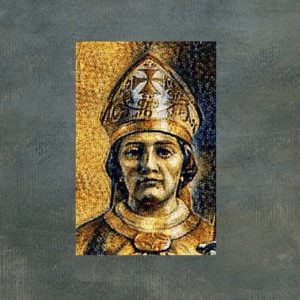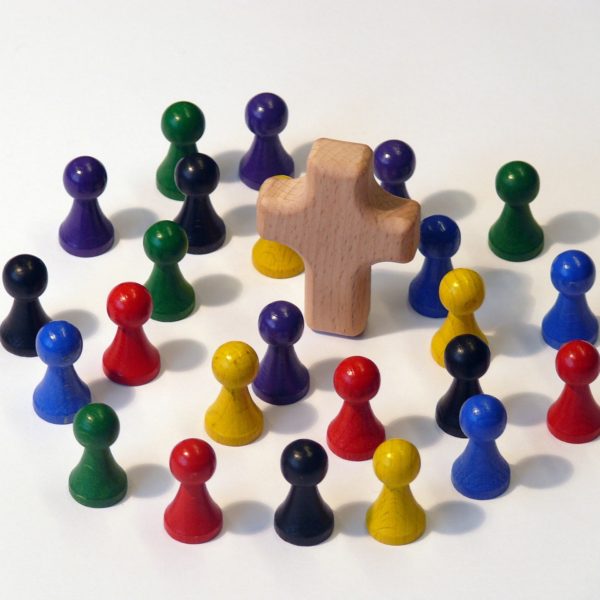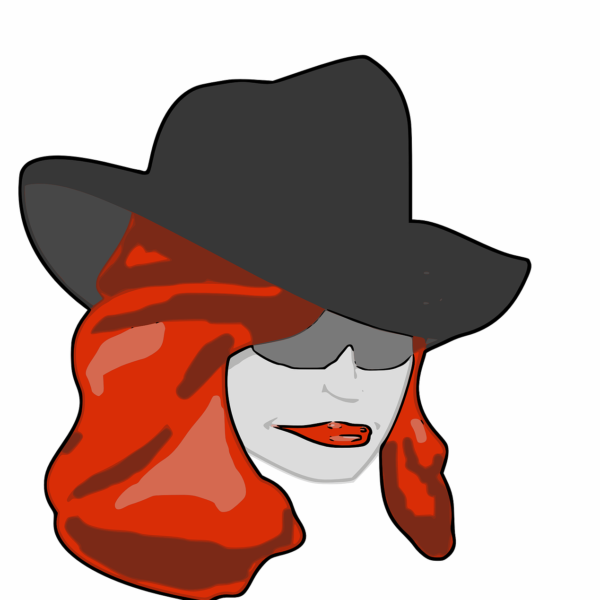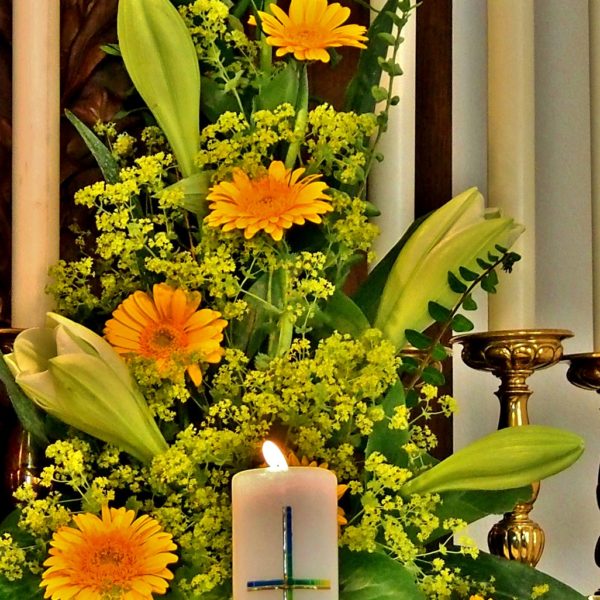The Pastoral Needs of Autism: Not-So-Great Expectations
by Aimée O’Connell
I write this from the United States, where many Catholic churches are in the early stages of re-opening after months of pandemic shutdown. The health departments of each municipality have strict guidelines which churches must follow to ensure their ability to resume public gatherings, and the sheer magnitude of tension, both good and bad, is palpable. People are desperate to have their normal routines back. Many remain afraid of virus exposure. Others feel the restrictions are excessive. I’m not here to debate that, but the fact is, emotions are very high right now, and as such, the conditions under which we are returning to the routines we knew are strict, tense and rigidly enforced.
Against this backdrop are those in the autistic population who have high resting anxiety. That phrase, “resting anxiety,” is itself an oxymoron we live with as ordinarily as we breathe. Our perceptual system is fine-tuned to pick up every signal and report it to the brain as something needing immediate attention. We “rest” very anxiously. For some of us, it looks like a fast idle, never being comfortable sitting perfectly still. For others, it comes across in constant thought, ruminating, second-guessing, running scenarios, anticipating, and exhausting ourselves interiorly. Anxiety saps our coping resources as quickly as they build up.
There are many in the autistic community who become overwhelmed by the pressure of expectations. It stems from the need for more time to fully review and comprehend the expectation and then match that with our ability to respond. Within our response, there will be aspects we know we can do and aspects which will challenge us to push ourselves, to try what we do not know, or to attempt tasks at which we have previously failed. We might compare it to the outrageous competition shows like American Gladiators and American Ninja Warriors, or even the lower-key shows like Minute to Win It, in that expectations can feel like disproportionately outsized obstacle courses or nonsensical, complex challenges that have to be completed under the pressure of time regardless of our ability to do so. While these game shows are staged as fun, there is no fun whatsoever in the autistic home version, especially when there is no reward to what we face and no studio audience rooting for us. In fact, more people than not tell us to “get over it” and “get going.”
There must be help for this kind of anxiety in the diagnostic community, right? Well, yes and no. As enlightened as practitioners are in our time, our culture as a whole is not very supportive. Anxious people are mocked colloquially all over the place. People who rely on routine are still called “anal,” thanks to Freud’s work one hundred years ago. People who need more time to process, comprehend and shore up our responses are called “slow,” or “bad team players,” or “lazy.” Now consider that people who feel genuine terror and overwhelming pressure when considering expectations can actually do okay if we are given time to let the tidal wave of anxiety crash and subside, to let our emotions spike and return to baseline, then to work either ourselves or with an advocate to form a plan for rising up and meeting these expectations. Sounds reasonable, and supportive, and cooperative… right?
The problem is, that tidal wave of anxiety ain’t pretty. Nowhere in human history is panic experienced as something polite, refined and orderly. People fleeing giant monsters are never portrayed as pondering their options quietly and discussing plans in calm voices. The same is true, interiorly, for those of us with expectation anxiety. The pressure triggers panic, and we react accordingly. Oftentimes, that is fight (explosive anger), flight (storming off) or freeze (unable to act). And, those in our vicinity, who are able to cope where we are not, see us as out of control and refusing to calm down, which creates more tidal waves.
Compounding this is the likelihood that when we anticipate this and ask for help ahead of time, we are dismissed as feeling entitlement, seeking to be excused or above the law for inquiring about accommodations and exceptions. The fact is, we are most often NOT coming from an attitude of superiority, but just the opposite: we feel keenly inferior. The bulk of our panic is not a response to the expectation itself, but rather, the menace of our self-accusations. We know we are different, we are weaker, we are easily confused… and self-loathing is a harsh taskmaster. We are usually not very loving towards ourselves. Our reflexive response is shame at our inadequacy, especially when we see everyone else gets it and can do it without difficulty. If they can, why can’t we?
Historically, diagnostic terminology has been rooted in the reactions of the community, not the individuals experiencing the anxiety. We have categories of “personality disorders.” We have terms like “oppositional” and “defiant.” Even expectation anxiety has been recognized (good!) but termed “pathological demand avoidance,” which just perpetuates the shame rather than solving anything together. Sadly, such terminology validates our self-loathing. Diagnoses may help the community feel like we have named the beast so that we can tame it, but the problem lies in the semantic branding as troublemakers, both in the eyes of the community and in our own minds.
Where does this leave us? How are we to get better… how are we to learn to love ourselves in our needs, and maybe break the cycle of self-loathing that manifests in outbursts… when this expectation is not yet modeled by the communities in which we live? While the world rages about outdated concepts and terminology in matters such as policing and racial discrimination, the mental health arena lags far behind.
I am not going to deny that expectation anxiety is problematic. It most certainly is, and in large public gatherings, that tidal wave of anxiety plus self-loathing creates chaos and can provoke dangerous situations. High emotions need to be contained safely, no matter who we are, for the good and safety of ourselves and the entire community. But there is no reason we cannot strive toward looking critically at our broken system with love. It is a radical suggestion to begin with such seemingly subjective sentiment as “love,” but if we stop to realize that love is a choice of our human faculties and not merely an emotion, perhaps we can find a place where the mental health system can become a healing model.
Back to the beginning: This month, many parishes are opening again, with high tension as people’s expectations are enormously magnified.
Many people in the autistic community are experiencing expectation anxiety. We are panicking at the thought of wearing masks for that length of time… of following marked spaces in orderly lines… of being told that deviations from the rules cannot be tolerated… of having our normal coping helps, such as lobbies and bathrooms and cry rooms off limits… of having extra staff watching us… of knowing that we are only allowed to be there if we can guarantee our best behavior… and we are finding it too much. We come down harshly on ourselves and take the blame before it is even issued, and just stay home. So much for inclusion. Is it anyone’s fault? No. But is it anyone’s responsibility to help?
Only the community can decide that.
And then, when these strict routines begin to fade back to ordinary time once again, will we remember this discussion, when an autistic person has an outburst during regular activities, when internal tension builds to a breaking point, when the ability to take a bathroom break means the difference between exploding and calming down? Or will we go back to sighing and commenting that someone that age ought to be able to sit for thirty minutes without excusing themselves, in the earshot of the person whose inner critic thrives on that kind of validation?
Only the community can decide that.









